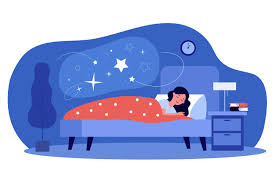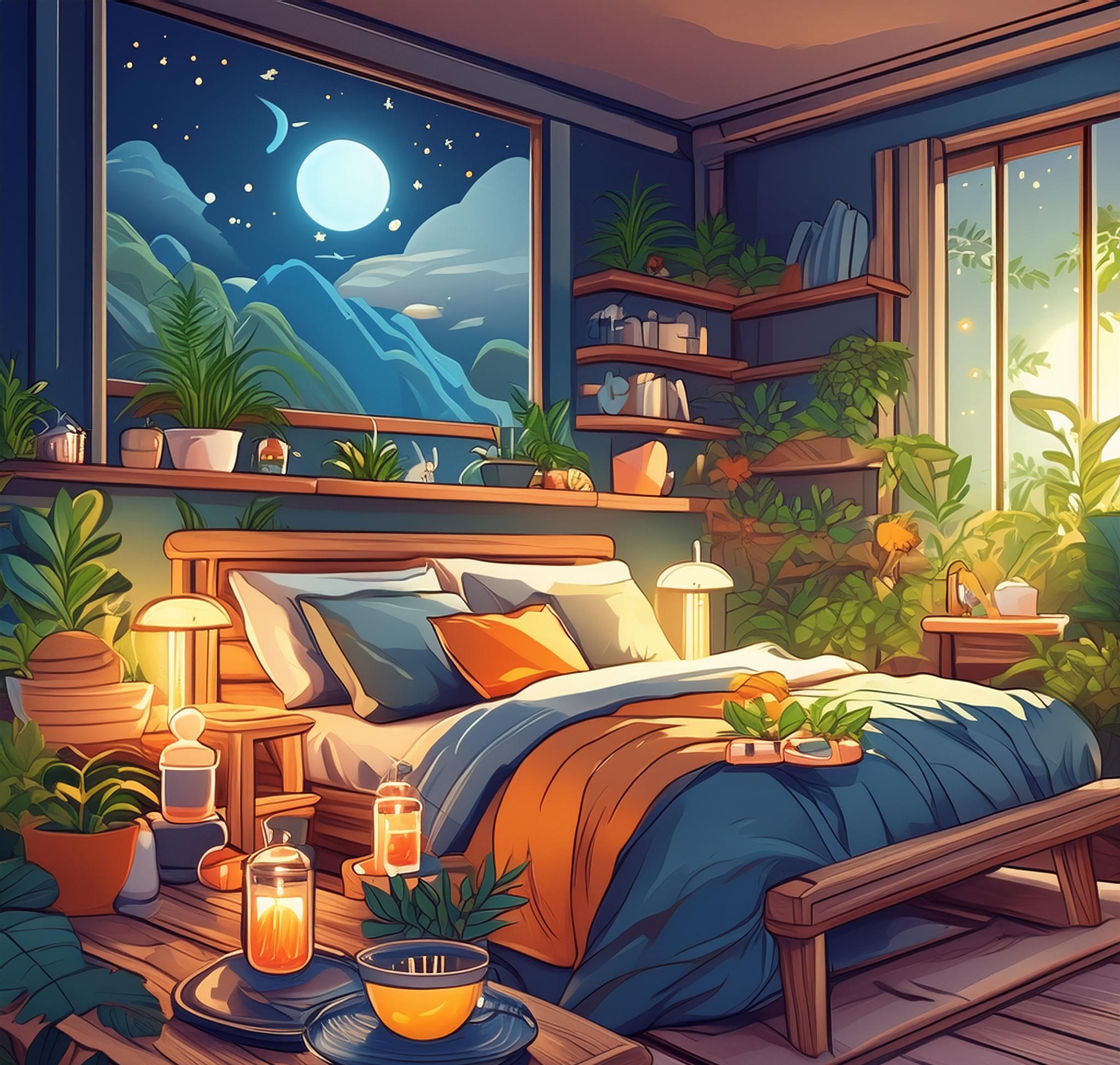“Sleep is the Best Meditation.” - Dalai Lama
Sleep is one of the best ways to relax our minds and bodies. As creatures of habit, we tend to overwork and take a load of stress daily. Hence one deserves to unwind and relax after a hectic day of work.
But how often do we get a “well-rested” sleep?
 In today’s time with the recurring work, and extremely busy schedules, a sound sleep has become a luxury rather than a necessity. People cannot afford to sleep because of multiple reasons. It can be overthinking, running behind schedule, being overworked in the office, and many more…..
In today’s time with the recurring work, and extremely busy schedules, a sound sleep has become a luxury rather than a necessity. People cannot afford to sleep because of multiple reasons. It can be overthinking, running behind schedule, being overworked in the office, and many more…..
These uneven patterns of sleep gradually increase, leading to Insomnia.
Hence this article talks about a few home remedies and practices for a better sleeping schedule, and significantly preventing the chances of being an Insomniac.
Establishing a regular Sleep Schedule:
We can always start small. If you are struggling with finding time to sleep or cannot stick to a particular cycle, then it is advisable to create a strict regimen that allows you to sleep for at least 6-8 hours daily. This problem is often faced by students who stay up late at night either working or studying. This unhealthy practice of staying up late, makes them feel tired and weak for the next day.
For starters, one can make a timetable where they keep aside a proper time for their sleep so that their work does not hinder their sleep schedules.
Limiting Power Naps Regularly:
Do you often take power naps in between your work, and count it as your daily need for sleep?
 This method is not favorable for our bodies. Yes, power naps are useful when we need a small pick-me-up to boost our energy for the next task, but it is not a well-rested sleep. When you go to sleep, your body is in a state of rest. After all the workload, it is sort of a meditation for your body. While you sleep, your body starts rejuvenating so that you feel fresh when you wake up.
This method is not favorable for our bodies. Yes, power naps are useful when we need a small pick-me-up to boost our energy for the next task, but it is not a well-rested sleep. When you go to sleep, your body is in a state of rest. After all the workload, it is sort of a meditation for your body. While you sleep, your body starts rejuvenating so that you feel fresh when you wake up.
When a person constantly takes multiple power naps, it disrupts the cycle, hence not giving enough time for the body to replenish.
Stop Consuming Coffee Before Going to Bed:
Coffee is a stimulant and it keeps us awake. The caffeine in the coffee takes time to wear off, hence facilitating the mind to be alert. This results in loss of sleep and can hinder your mind to be at rest.
Practice Meditation:
Insomnia can also be caused by having racing thoughts and anxiety. When your mind is not at rest, it cannot be calmed. Therefore, to calm your nerves and reduce stress, you can start practicing meditation. Taking time off for yourself daily is not just a practice of self-care but also quite therapeutic if you often deal with stress and pressure regularly at your workplace. Meditation reduces the chances of headaches and migraines which are also some common factors that cause Insomnia.
Limiting Your Screen Time:
 Are you the type of person who scrolls through your social media or checks work emails just before going to sleep?
Are you the type of person who scrolls through your social media or checks work emails just before going to sleep?
This practice has become quite common among people nowadays. Using your phone or viewing any other screen just before going to bed is quite harmful to you. It puts a strain on your eyes, as well as hinders the melatonin levels in your body. The blue light emitted from these screens is the reason why your melatonin levels fluctuate and disturb your sleep cycle.
Watch your Diet:
Dietary choices are one of the biggest contributors to how you sleep. You need to have the right proportions of food, that are packed with nutrients.
You can also include melatonin-rich foods in your diet.
Like;
| Melatonin-rich foods |
| Milk |
| Almonds |
| Cherries |
| Eggs |
| Mushrooms |
| Strawberries |
| Grapes |
| Oats |
Melatonin is a type of hormone that induces sleep, hence consuming foods that are high in melatonin significantly helps if you have Insomnia.
Note: Having a regular diet is also advisable for a better sleeping pattern.
Proper Lighting:
Lighting is often negated when it comes to factors contributing to a good sleep. Harsh lights can cause one to have a disturbed sleep. Hence the environment needs to be as calm as possible. It includes better lighting, ensuring there are no visual disturbances when one goes to bed.
These are some of the tips that one can practice to sleep better and also prevent Insomnia. If your sleeplessness persists, then it is advisable to consult a medical practitioner.
